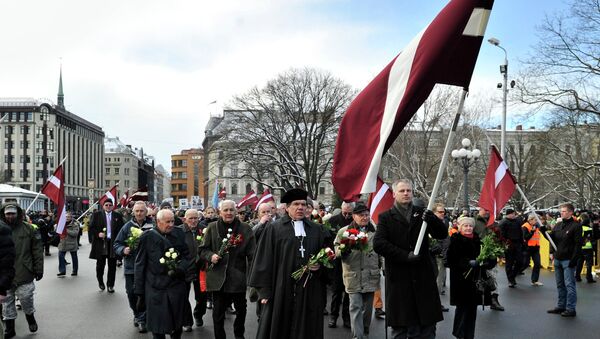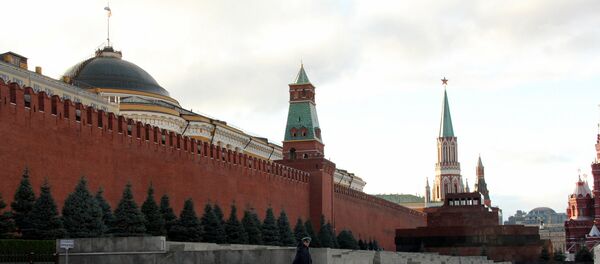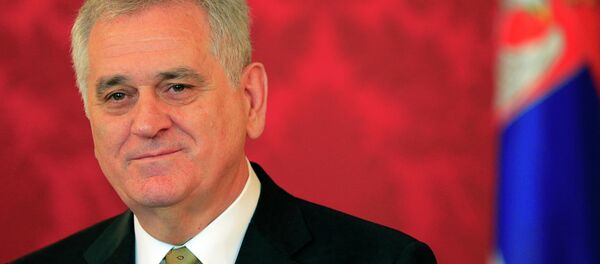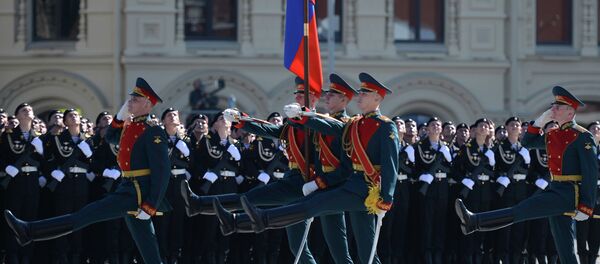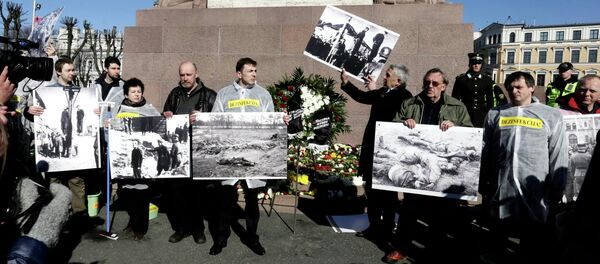The author revealed that among those beating the sanctions war drums and attempting to lessen the importance of the Soviet Union’s role in WWII are sons and daughters of fascist and Nazi Eastern European émigrés who entered the US via the CIA's "Operation Paperclip," in order to escape trials in their homelands.
"Out of this constellation" emerged the Ukrainian-American Zionist Lev Dobriansky and his daughter Paula, former George W. Bush State Department official. Another one-time supporter of Nazis in Hungary was Gyorgy Schwartz, who later took the name of "George Soros." Their ideological offspring can today be found in many government offices across eastern and central Europe, the investigative journalist noted.
Latvian President Andris Berzins is turning a blind eye to the annual Waffen SS veterans' parade in Riga. Estonia's President Toomas Hendrik Ilves (a former head of the Estonian desk for the CIA-financed Radio Free Europe) supported the decision of the Estonian government to remove a Soviet victory statue from the capital to the city's outskirts, Wayne Madsen underscored.
That means the Western leaders would find themselves in an embarrassing situation "standing alongside neo-Nazis and paleo-Nazis of every stripe, including supporters of Adolf Hitler and the Ukrainian Nazi leader and German SS enabler, Stepan Bandera," Wayne Madsen remarked sarcastically. However, it seems that the three former US ambassadors do not care. They have long been working with anti-Russia right-wing groups in Ukraine.
"In what can only be considered a diplomatic slap at the Kiev regime and its Western supporters, the leaders of the eastern Ukrainian people's republics of Donetsk and Lugansk in eastern Ukraine will be in the same Red Square," emphasized the author, adding that it would de-facto mean international recognition of their status.
The US' action aimed at boycotting WWII Victory Day in Moscow is obviously "immature," the author noted: "The action is very reminiscent of the US-led and diplomatically-immature boycott of the 1980 Summer Olympics in Moscow, a move deemed to have done more long-term harm to the Olympic movement than short-term damage to the USSR."
